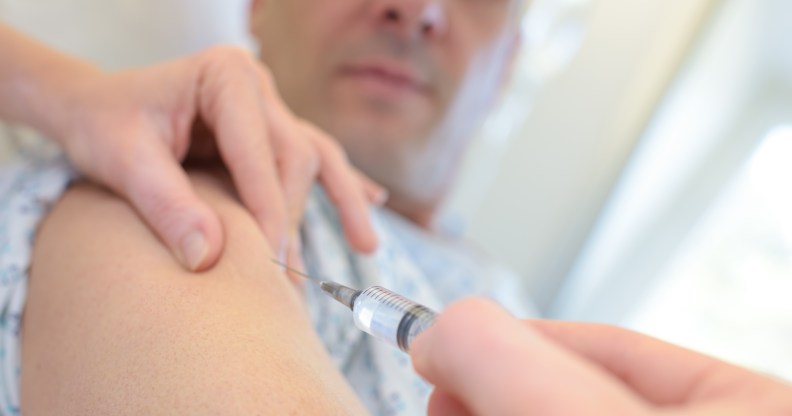A HIV vaccine could be available as soon as 2021, experts say

Trials are ongoing for potential HIV vaccines. (Envato)
Experts are “optimistic” about three late-stage trials for a HIV vaccine, with the possibility that an effective one could be available as soon as 2021.
Dr Susan Buchbinder is chairing two of three trials, named Imbokodo and Mosaico. A third trial, HVTN 702, is also entering its final stages.
Buchbinder told NBC: “We have three vaccines currently being tested in efficacy trials and it takes quite a bit to actually be promising enough in the earlier stages stages of trials to move you forward into an efficacy study.”
She added that this was “perhaps one of the most optimistic moments we have been in” for research on HIV vaccines.
The HVTN 702 trial is the oldest ongoing HIV vaccine trial, and it targets a specific strain of HIV typically found in Southern Africa.
HVTN 702 was based on the RV144 vaccine, which in 2009 managed to reduce the rate of HIV infections by 30 percent. Although that was not enough for it to be considered successful, it is to date the only vaccine to have any effect on the virus.
Clinical results for HVTN 702 are expected in late 2020 or early 2021.
Imbokodo and Mosaico, however, use “mosaic” immunogens which means they could target a range of HIV strains. They are almost identical, but with slightly different formulations.
Imbokodo completed enrolment this summer of 2,600 women in five southern African countries to take part in the trial. Mosaico plans to enrol 3,800 gay men and trans people for trials across the United States, Latin America and Europe.
Results from the Imbokodo trials are expected in 2021, and results from Mosaico are expected in 2023.
Buchbinder added: “None of these vaccines is a particularly simple regimen, so it’s going to require quite a bit of effort to deploy.”
“They require multiple injections, and so each one would require a minimum of four different doses in its current configuration.”
But she added that if an effective vaccine was found, it could be a “stepping off point” to simplify the process.
Research ahead of this year’s World AIDS Day shockingly showed that 40 per cent of those surveyed think there is a cure for HIV.
The survey also revealed that one in five people think that HIV/AIDS was a disease of the 1990s and is no longer an issue.
Alarmingly, 25 per cent of people don’t know that the virus is a sexually transmitted infection (STI), and while 73 per cent learned about STIs at school, just eight per cent learned about HIV.

